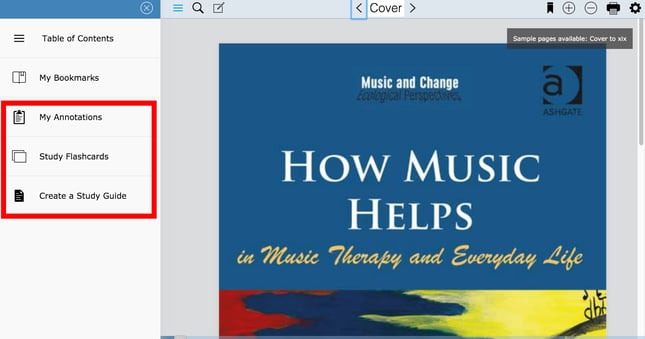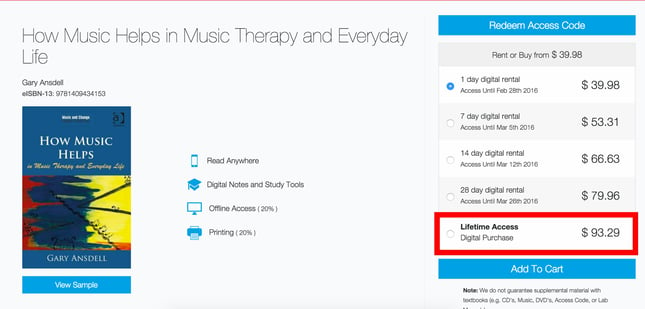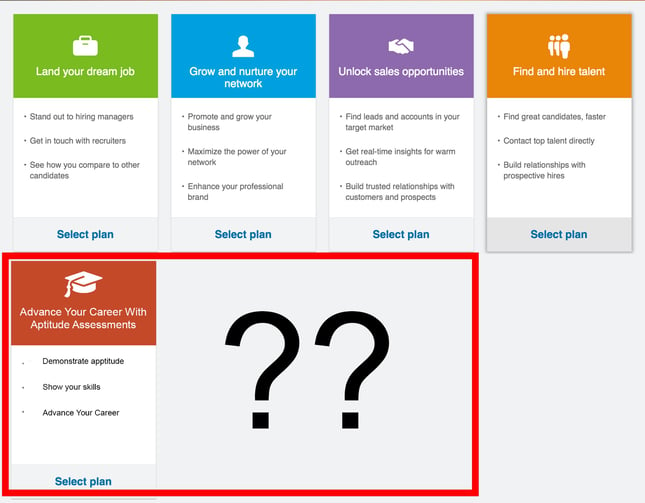
When I was in school, buying books, not to mention carrying them around campus, was...a painful experience. Worse yet, there were classes where you'd buy the book, but the instructor wouldn't make it a priority to use. In some classes, books were outdated and served as reference points. Or doorstops.
If you're still buying hardcover books for your classes, stop. I'm serious. Because the days of needing to carry around 700-page books on financial accounting are over. Do your spine a favor.
RedShelf is what's next in textbook publishing, and they're making it easier than ever for students to go from buying-and-reselling of books to making a lifelong investment in an asset: their own career. But that's just the start. RedShelf would make a great addition to LinkedIn as a content portal for professionals serious about career advancement.
Lifetime Access to Your Textbooks Sets the Stage for Big LTV and Usage.
"When am I ever going to use this? I don't think I'll ever need to know this in my career."
If I could give college students one single piece of advice, it would be to 1) not ever utter this phrase, and 2) If this is even remotely your line of thinking in regards to school and life, you're going to be in for a rude awakening. Life is ALL about learning new things. A lot of times, there won't be any books around when you need the knowledge. If you have lofty dreams, you're going to be learning new things every day. Even if you don't, you're going to have to learn new things just to stay afloat.
Sometimes learning new things can actually mean simply going back to the fundamentals. Steve Kerr made the Golden State Warriors, a historically great team, start by revisiting the fundamentals. That's where RedShelf is driving change in the college experience. With lifetime access, you'll always be able to go back and look at the books you once needed to get through the class. The same ones you may have once thought you wouldn't ever need in the real world.
Flash cards & study guides ease the transition to all digital, all the time.

Having all your books in one place is great, but where RedShelf takes things to the next level is in their ability to create flashcards and study guides for you. If you're the type who goes through the material and writes down your notes, then works to create a study guide later, RedShelf is going to save you a ton of time. Now, those study guides and flash cards are going to have been made as you go through the material. It's also great because you'll be able to share them with friends or your study group a lot easier than you would have been able to the old way.
RedShelf's Long Term Revenue Opportunity
RedShelf is certainly reinventing the way students consume information, but they have a great long-term subscription revenue opportunity just waiting to be tapped into. Their current go-to-market of getting content, then getting college students on the platform using the system, encourages development of important lifelong habits. When students graduate, the learning can continue. RedShelf could sign up new graduates for continual learning courses for a very low monthly subscription cost, say $1.99/month, just to keep them on the platform. As new graduates move up in their careers, they could come back to RedShelf to make incremental content purchases in addition to their low monthly subscription. Now armed with data on the particular career vertical their most active users are moving farther into, RedShelf can optimize their content offering appropriately.
Financial services is a great example. There are a number of certifications that must be attained for financial professionals to move up in their career. RedShelf could easily provide this content to users who have built habits on using RedShelf during their undergraduate time. Their current pricing model for content is a good start.
A Great Pricing Model Helps Get to Lifelong Usage

What I love about RedShelf's pricing model is it presents amazing value for the lifelong access option. It really doesn't make sense to select any option other than "Lifetime Access" the value for this option is overwhelming. At first glance, the lifetime option appears to be about 3x as expensive for infinitely longer value. Even when compared to a 28 day rental, why wouldn't you opt for the lifetime version when it's only about $15 more? Working to RedShelf's advantage here is a purchasing decision being made by a young adult in their early days of newfound freedom. Books are one of many purchasing decisions that they're making for the first time. In a lot of instances, they're not even purchasing with their own money, which lessens the pain of going with the most expensive option.
Why LinkedIn Would Buy RedShelf

It would be easy to look at RedShelf and assume they'd get eaten up by Amazon. Digital book delivery, right?
But what about LinkedIn? LinkedIn has already made major committments to two areas: content and monetizing their user base with subscription revenue products. Pay to see who's viewed your profile. Pay to send emails to important contacts you don't know. Pay to connect with new clients if you're a member of the freelance economy.
Content plays right in as central component to their platform, playing no small part in driving usage. LinkedIn has all the data on career progression trends and timeframes in which they generally happen. RedShelf would be a great add-in to one of their subscription products, or as a new standalone product that offers continual education and ability to advance your career. Users could take aptitude tests that then display on their profiles. RedShelf's content delivery system could power it all.
As the leading professional social network in the world, LinkedIn's aptitude assessment programs could be adopted very quickly. They'd also have ample industries on which to test out this new product, before they are rolled out to the masses. And, rather than relying on great content to drive continued engagement, LinkedIn could continue to secure long-term usage through paid subscriptions, not unlike what they're already doing with existing product lines.


